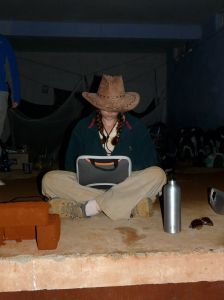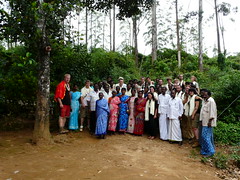The Big Society in Practice
 With further reductions in Youth Services I continue to be intrigued by the concept of Big Society and how this is portrayed by some as the panacea to all the financial reductions. Now – don’t get me wrong, I’m all for contributing and volunteering in your local community and believe voluntary youth services are particularly strong. It’s just that basing policy and services on the assumption that people who volunteer will want to do more, with little to no funding and do what we would like them to do has the potential to be either the most amazing idea ever or one that is fundamentally flawed. I tend to err towards the later.
With further reductions in Youth Services I continue to be intrigued by the concept of Big Society and how this is portrayed by some as the panacea to all the financial reductions. Now – don’t get me wrong, I’m all for contributing and volunteering in your local community and believe voluntary youth services are particularly strong. It’s just that basing policy and services on the assumption that people who volunteer will want to do more, with little to no funding and do what we would like them to do has the potential to be either the most amazing idea ever or one that is fundamentally flawed. I tend to err towards the later.
As we move to Targeted Services due to funding reductions we are withdrawing from the universal delivery of generic youth clubs in the more affluent areas of the county. This affects many of our rural villages. With this in mind I am one of probably many who is working with volunteers within local villages to see how they can take on the running of the local youth club. The meeting the other evening was a great example of what individuals are prepared and not prepared to do. The group are really keen to ensure that the club in their village remains open. They want to do as much as they can to do this and want us to work with them to find youth workers. However they are also really clear that they can’t do this without support and involvement from ‘professionals’ who know about systems, policies and how to work with young people. We are able (at the moment) to offer advice, guidance and support and have also pointed them in the direction of voluntary organisations working in this field. However whilst they are happy to volunteer they don’t want to have to take on responsibility for employing staff, health and safety both on and off site….and the list goes on. Members however are equally clear that we can no longer employ staff to undertake youth work in these areas and that all the work is the responsibility of the volunteer groups. Impasse!
In some of the areas under discussion there are small groups of young people who have quite challenging behaviors. The group are aware of their limitations and can’t understand why we are looking to them as volunteers to deliver what they believe is an essential service for young people that should be delivered by those qualified to do so. This resonates for me with what Nick Wilkie wrote last September:-
“Nobody has suggested that our banks, for example, should be led into recovery by armies of well-intentioned volunteers. So surely we don’t think that equally complex social ills can be remedied entirely without professional expertise and full-time commitment?” (See full post here)
Local communities know this, volunteers know this, we know this and yet still we march towards the dismantling of universal services regardless of the potential damage this may cause. In the meantime the local communities and I are still meeting to see what we can create in spite of policy, the Big Society, and other good (?) intentions because we all know that at the end of the day the ones who are going to miss out are those most in need of support, encouragement and opportunities – young people!

 As an aside for those of you that don’t know and might be interested February is
As an aside for those of you that don’t know and might be interested February is 





